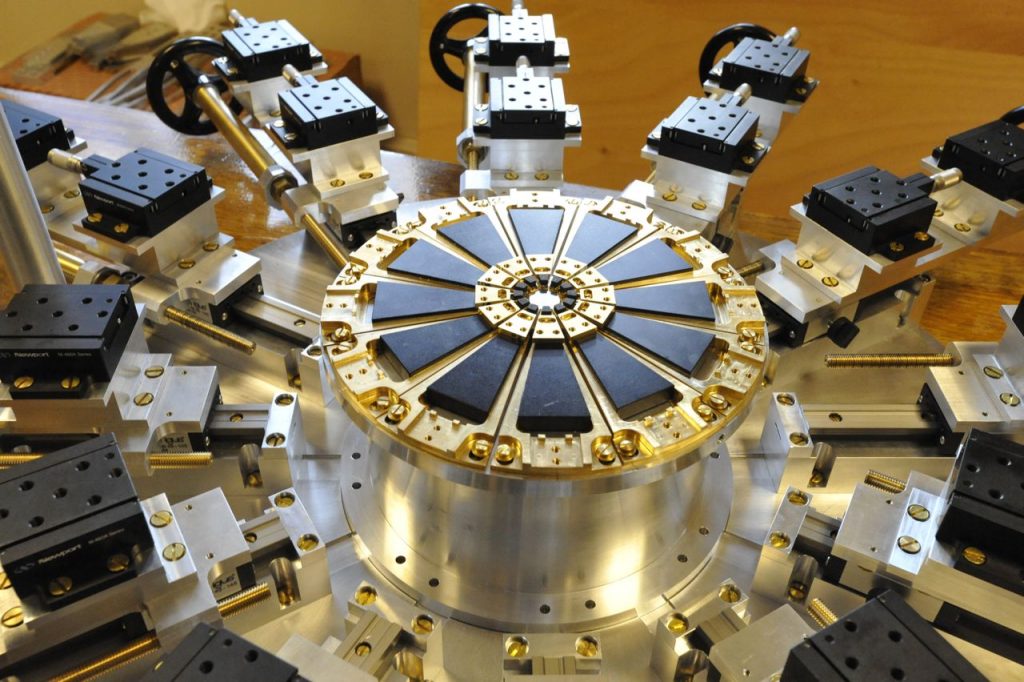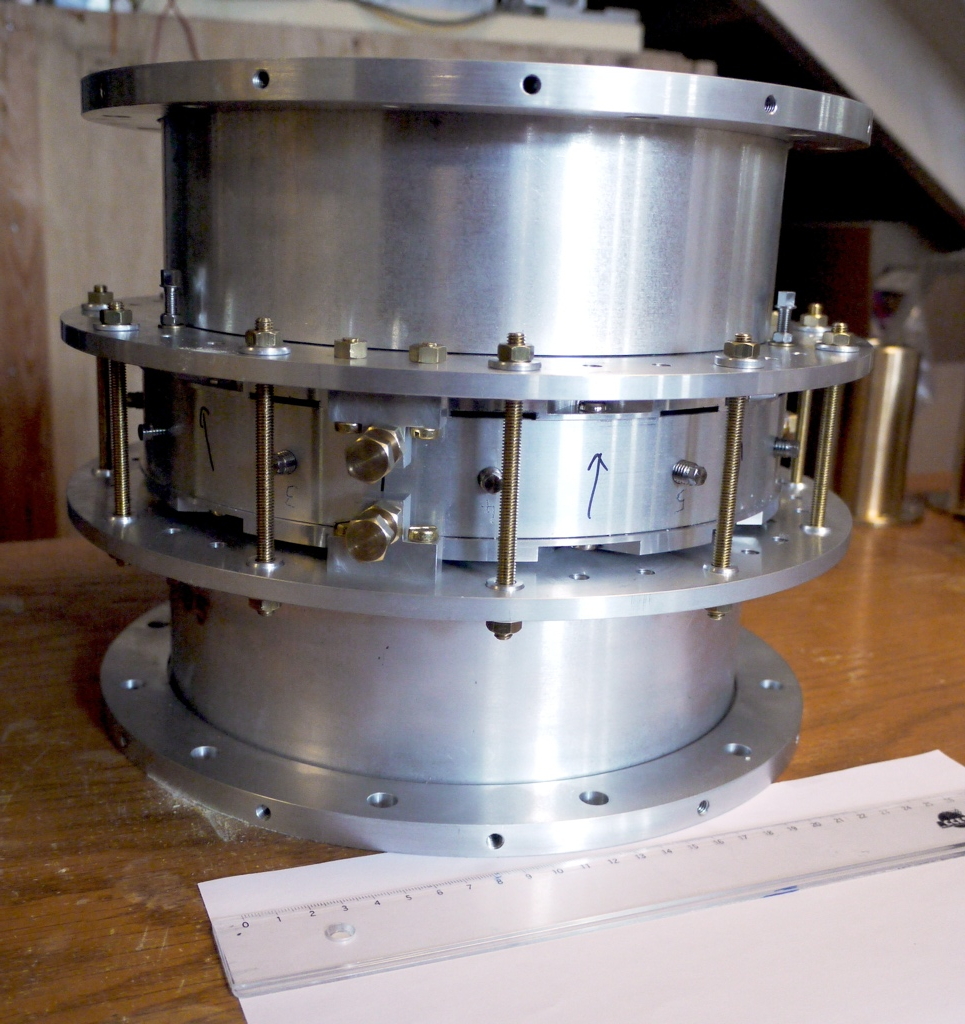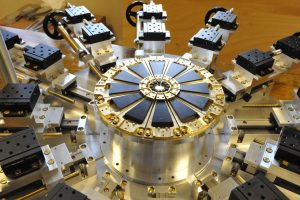Portable, high-sensitivity low-field detectors are the second axis of our research. Analysis away from the laboratory becomes important, in particular in hostile environments, such as high-radiation areas. It can be also cost effective compared to standard superconducting imaging systems. Imaging and on-line inspection of such industrial processes is a challenging question we try to solve.
There are many cases where the sample, object or subject we want to study cannot be brought at the laboratory and be placed inside the bore of a high field super-conducting magnet. Such situations appear often in industrial and biomedical applications. Additionally in many case access is limited to one half of the space (for example when trying to measure moisture inside a wall), and a one-sided detection system is needed. This direction of research was initiated with the project named NMR2GO funded by ANR and has now reached the point were uniform one-sided magnets are built and are operational. The goal of the project is to design and built uniform permanent magnets with MRI characteristics. One such magnet is shown on the figure on the left. It generates a uniform gradient above its surface, which remains linear for many cm inside the object under study. Applications of this device in surface sciences are currently underway.

Following these lines of research we have developed a theory that is capable of describing both one-sided as well as closed magnets. In the latter case the homogeneity can be achieved easier at a higher magnetic field can be produced. In these conditions spectroscopic information can be retrieved. Uniform cylindrical magnets are built having liquid-state field uniformity. One such magnet is shown on the figure on the right. It generates a uniform magnetic field in its center over many mm3. The goal of the project is to design and built uniform cylindrical permanent magnets with NMR characteristics, capable of performing high resolution localized spectroscopy and applications in food and oil industries.
References:
“Measurement of self-diffusion in thin samples using a novel one-sided NMR magnet”
K. Panesar, C. Hugon, G. Aubert, P. Judenstein, J.-M. Zanotti and D. Sakellariou, Micropor. Mesopor. Mater., 178, 79 (2013).
An expansion of the field modulus suitable for the description of strong field gradients. Application to single-sided magnet design, field mapping and STRAFI.
Hugon, C.; Aubert, G. & Sakellariou, D., J. Magn. Reson., 2012, 214, 124-134
A Systematic Approach to the Design, Fabrication and Testing of Permanent Magnets Applied to Single-sided NMR
Hugon, C.; Aubert, G. & Sakellariou, D., AIP Conf. Proc., 2011, 1330, 105-108
Design of arbitrarily homogeneous permanent magnet systems for NMR and MRI: theory and experimental developments of a simple portable magnet
Hugon, C.; D'Amico.; Aubert, G. & Sakellariou, D., J. Magn. Reson., 2010, 205, 75-85
Design, Fabrication and Evaluation of a Low-Cost Homogeneous Portable Permanent Magnet for NMR and MRI
Hugon, C.; Aguiar, P. M.; Aubert, G. & Sakellariou, D., C. R. Chimie, 2010, 13, 388-393



